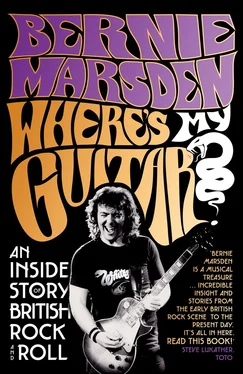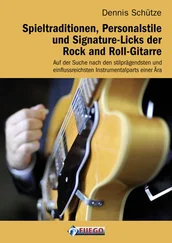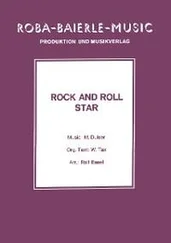Alan was auditioning for a bass player.
I didn’t blame my uncle Ken. Not only was he always a bit deaf, but he probably wouldn’t have realised there was any difference in putting the ‘bass’ before guitarist. I made my apologies for wasting their time and got ready to go. Alan Clarke told me not to worry. He passed me a bass and I had my audition after all. How nice was that? I hung out with him and the band for the day, making tea and coffee. Alan gave me a huge injection of confidence when he told me I could go all the way with the guitar, and I thank him for that.
I had another non-starter, at least first time around in April 1972, with UFO, a band who didn’t mean that much to audiences in the UK. I had never heard of them before I auditioned but they had enjoyed success in Japan and Europe. They were certainly a bigger band than Skinny Cat. A hippy girl with pink hair answered the door at what I thought was the audition. ‘Name?’ she said. No greeting. ‘Wait here.’ A few lads, presumably guitarists, were waiting in a small room. There were guitar cases everywhere. The pink-haired girl ushered me into a small office to meet manager Mark Hanau, who was in a yoga pose, wearing a thin woollen sweater, and sporting cropped, spiky hair and a good layer of makeup. He looked at me without saying a word. I was almost 21, had long, thick, curly hair and was wearing a denim shirt, jeans, and desert boots. I wasn’t exactly Ziggy Stardust. ‘Bernie Marsden?’ he said, looking at his list, not me. I just wanted to know where I should set up and play.
Calling me ‘my dear’ a good few times, Mark said that UFO was his vision and I would by no means fit that vision. I could be the best guitarist in the world, but I had turned up to an interview rather than an audition. I was straight out. What a twat. I thought that was the end of that.
Late in the autumn a green envelope arrived emblazoned with the logo of a fairly new company, Chrysalis Records. Wilf Wright was UFO’s new manager and he was inviting me to an audition – yes, a proper audition, in a rehearsal room, with a Marshall rig. I was working at that time for a Buckingham builder, and took the day off work. It was a case of second time lucky. I got the gig. Time to be a rock star.
Skinny Cat had built up a very good following but I knew the band would never scale the heights. Mick Bullard and Ray Knott were very supportive and said they had known I would be gone at some point. I only have fond memories of my Skinny Cat days. My folks were pleased for me but, understandably, a little apprehensive. They had read about bands and musicians in the press: womanising, hard drinking, drugs, overdosing. I did my best to reassure them that I would be OK.
My girlfriend, Frances Plummer, was a fashion buyer at Harrods and we got a tiny bedsit in Shepherd’s Bush. This was it – the life in London that I had dreamt of and that we were now living together. We didn’t earn much, but we got into a wonderful London routine: jumping on buses, hailing black taxi cabs, taking the tube, exploring markets with spicy foods and foreign ingredients, and visiting Greek, Chinese and Indian restaurants. Fran’s career advanced rapidly and I would go away a hell of a lot on tour but she understood. She knew that me being a pro guitarist wouldn’t be easy but she too had her work. I was extremely lucky to have her by my side.
I soon realised that, by coincidence, the guitarist from Hawkwind lived on the top floor of our house while Mott the Hoople guitarist Mick Ralphs and his wife Nina rented the large basement flat. Mott were veterans of multiple US tours, despite Mick being a notoriously bad flyer. I watched the tour manager and band members carry him from the flat to the car for the airport on many occasions, full of sleeping tablets for anxiety.
It was while we were having one of our regular tea breaks in their flat, Mick fiddling with a newly acquired Gibson 335, that he passed me a cassette to play. A fan of Mott had sent the band a demo of a song he had written. It was called ‘All the Young Dudes’ and the fan was David Bowie. Mick really rated the song and thought it would be Mott’s last shot at the real big time. It was, indeed, the breakthrough at last, followed by ‘All the Way from Memphis’ and ‘Honaloochie Boogie’. I was lucky to get to hear these as rough mixes. Suddenly Mott was a hit. Fran and I watched Mick on Top of the Pops on our new tiny colour TV in the bedsit. I felt happy for my neighbour, it was a massive deal and a dream of mine. I thought one day maybe it could happen for me.
The UFO manager, Hull-born Wilf Wright, was good to me from day one. He may have felt a little sorry for me, because he knew there was a slight tension from the off between the rest of the UFO boys (Phil Mogg, Andy Parker, and Pete Way) and me. Partly this was because the others were all from north London, and I was the lone country boy. They let me hire one roadie and so I was always grateful to have Chelsea Dunn from Skinny Cat with me. It really did help in those early days to have him around: he was my only ally. The band only ever seemed to play one-chord boogies; there was nothing particularly challenging about the music. Still, it was good to be playing in a headlining act – I was now in the first division.
My first pro gig was at the Marquee Club on 3 November 1972. Other bill-topping acts that week were Chicken Shack, Patto, Beggar’s Opera, Stackridge, and Nazareth – even Screaming Lord Sutch. Fans were queuing to get in along the street and past the Ship – this was the Wardour Street pub to be seen in, if you were a musician. Once I used to be in those lines myself and now others were waiting to see UFO.
I injected a few bluesy things into the setlist, ‘Move Over’ by Janis Joplin and ‘Back In The USA’ by Chuck Berry, but that was the extent of my musical input at this early time. Andy Parker was a powerful and very loud player, although he could not play a straight drum roll. Pete Way, in my opinion, wasn’t the most naturally gifted bass player I’d ever worked with. He wasn’t that fussed about technique or sound, and rarely locked in with Andy – which is vital for drums and bass: the rhythm section always needs to be together. He was always more concerned with his stage clothes than his playing.
A pattern emerged very quickly. Phil Mogg had a tendency to ‘Baby, baby’ after almost every line he sung and it irritated me intensely. The first line of ‘Move Over’ is, ‘You know that it’s over, baby’, and even that was followed by ‘Baby, baby’. I found myself stifling an irritated grin every night. Phil and I were on a collision course from day one, really. He never passed up the chance to exert his position as number one, not that I ever wanted it, but I did ask more questions about running a band in that first month than Andy or Pete ever had. I wanted to learn about this business of being pro, and fast.
I soon gathered a following, much to Phil’s acute annoyance: we played about five shows a week and I received £15, increasing to £20 when we were in Europe. Doing a gig almost every day of the week undoubtedly hardened my character. I was becoming very resilient. It wasn’t long before I realised the job was much more than playing the guitar.
My first trip abroad – my first-ever flight – was on a Lufthansa plane to Frankfurt, Germany. We played the Zoom club, the Frankfurt equivalent of London’s Marquee. I was amazed when the audience really took to me. Everything made sense that night – my decision to join had been vindicated. Here was a whole new audience for me to conquer: goodbye north Bucks, hello northern Europe. I never underestimated all the hard work UFO had done in Germany, which helped me to build my own name. We were headlining for audiences of up to a thousand a night and thousands more at festivals. It was a far cry from the couple of hundred fans I might have seen before. I appreciated that, still do today.
Читать дальше












